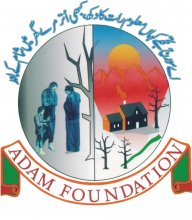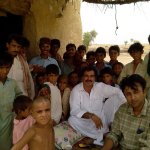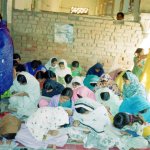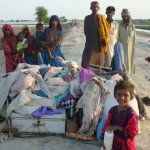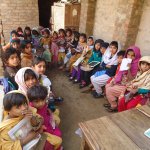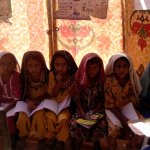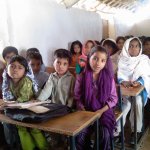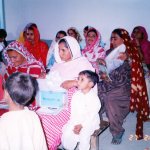Social Action Report, Sukkur
Adam Foundation
Ashfaque Hussain (Adam Foundation) in collaboration with COE, truly believes that unless people receive proper education and parents do everything in their power to send their children to school, the condition of his country and the development of his people won’t improve. Through the amazing work Ashfaque is doing together with 200 teachers in 10 different districts, he has impacted the lives of 14’000 children.
Ashfaque is also promoting adult education in rural areas, teaching especially women who have the desire to become literate.
Ashfaque has also positively helped improve the life of many families and co-workers by teaching them Peace building skills through a special meditation practice that he learnt during his first WSYC gathering held in Thailand at the Dhammakaya Foundation in 2008.
Current Projects include:
- Sewing machines - supporting entrepreneurial initiatives
- Flood relief work
- Teaching awareness and the benefits of meditation to the community
- Improving the quality of education through public and private partnership
- Youth empowerment
Past Projects:
- Human Rights for women and children
- End Violence against Women
- Adult literacy
- Non formal education
- Provided moral and medical support to 3 women who were victims of acid attack
- Saved the lives of 5 women and made arrangements for their safe shelter who were blamed for the honor killing
Interactive dialogues between youth and like minded people on Peace and the role of Religion in the development of ethics.
HIV/AIDS
Pakistan Relief Efforts
Since the tragic floodings that have affected Pakistan in the summer of 2010, our Chapter leader has been helping in the Relief efforts, thanks to the constant support of COE worldwide. He has been able to provide more than 600 victims with food, fresh water, medicine, transportation to the relief camps, shelter, blankets and milk powder for babies.
On the 20th of February 2011, Ashfaque was contacted by the Pakistani government and entrusted with a truck filled with relief goods, donated by various countries. He could distribute medicine, food and cloths worth 2 millions Rupees ($30.000 USD) to flood victims in the Relief camp of Sukkur. Ashfaque also arranged for a local volunteer Doctor to be brought to the camp, so that the children could be examined and prescribed with the appropriate medicine.
Unfortunately the floods also destroyed many schools in the agricultural areas and children were forced to break off their studies. Despite of the difficulty to access these areas, Ashfaque has managed to go there and set up provisional schools within tents enabling children to continue their education.
In May 2011, two Chapter members carried out a population census in remote villages.
Global Solidarity
Supported by the Chapter, children in 3 schools have sent peace prayers and good wishes for the safety of Japan.
Long Term committment to Education in Pakistan
Working on education in rural areas of Pakistan is not an easy task for anyone who is interested in motivating people regarding educating their children. The reason is that most of the parents have old mindsets regarding engaging their children in child labor and agriculture work in the fields.
For donating certain place like at least one room for opening of school so that their children get education.
Following steps I used to follow in opening of school in village.
- Survey of village
- At least registering 40 children age 5 to 10 for primary education
- Identification of room in village for opening of school
- Meeting with community members for donating room for school and enrollment of their children in school
- Arrangement for hiring of teacher
- Provision of education material like books, pencils, copies, white/black board, wooden desks/benches
It is necessary that we receive positive political support for opening of school, so couple of meetings remains necessary with the local area political leaders. Above were the basic steps I used to follow for opening of school. Currently literacy of Pakistan is 67% for males and 36% for females. Yet there are many controversies over the specific literacy ratio of Pakistan for both males and females.
By Ashfaque Qureshi





